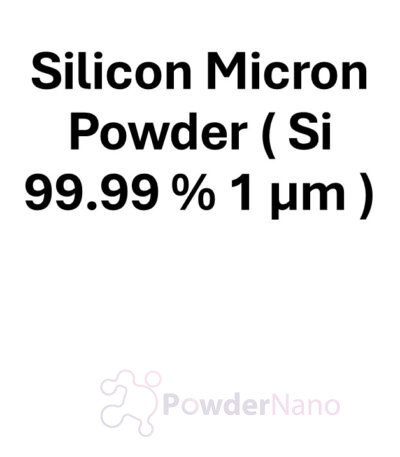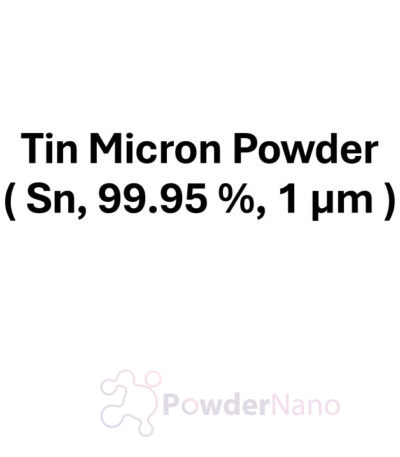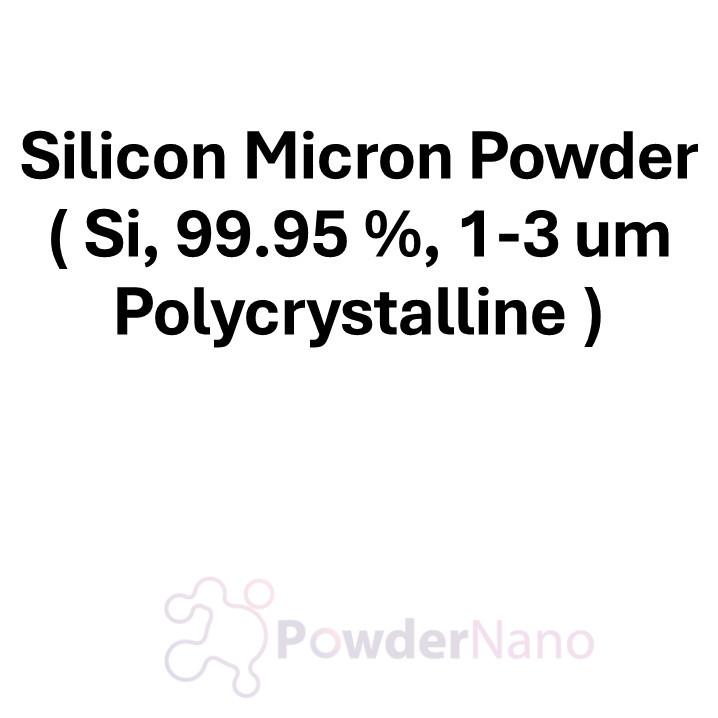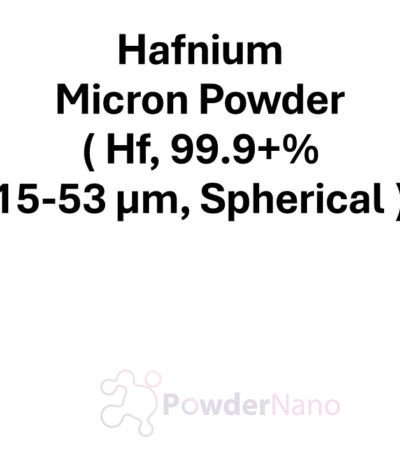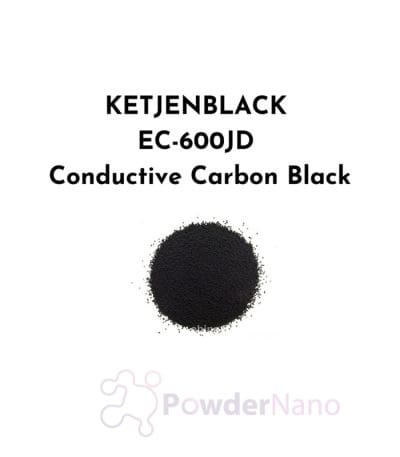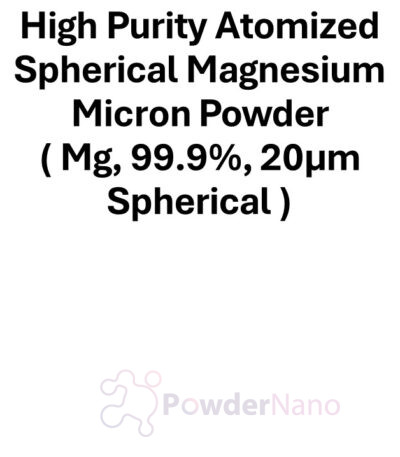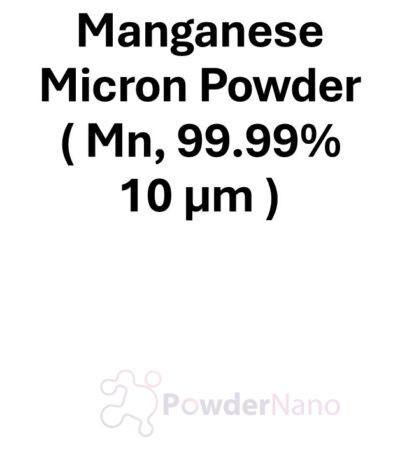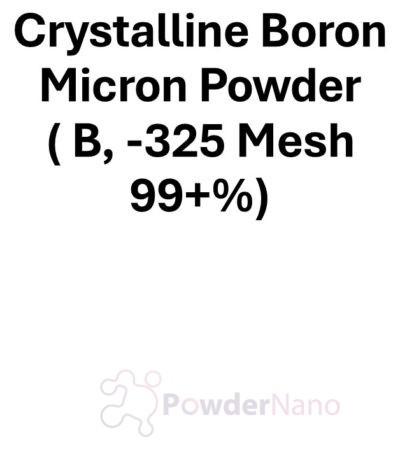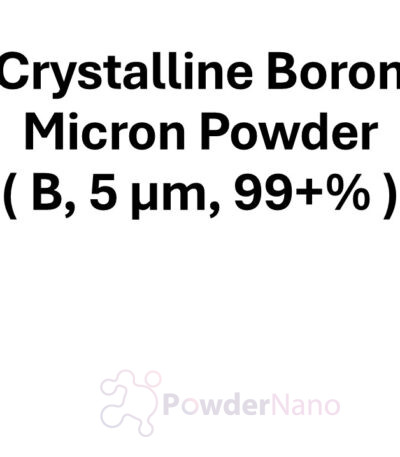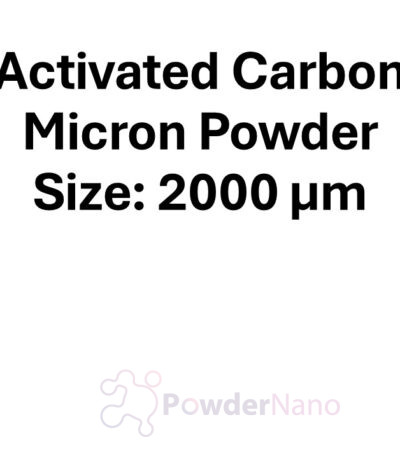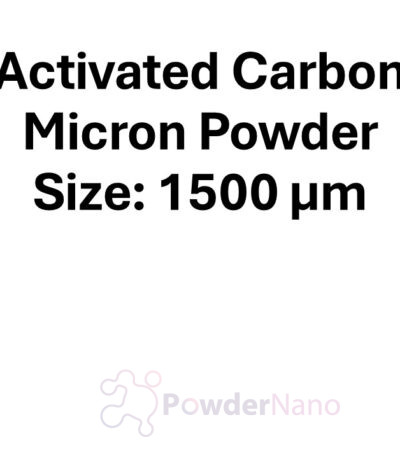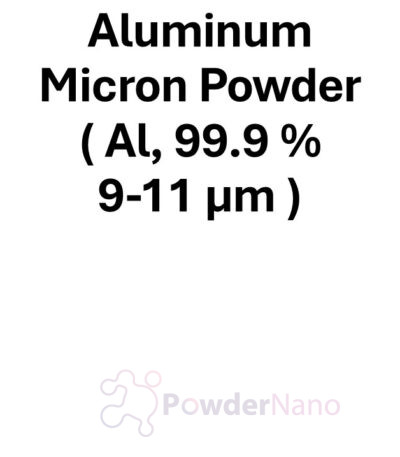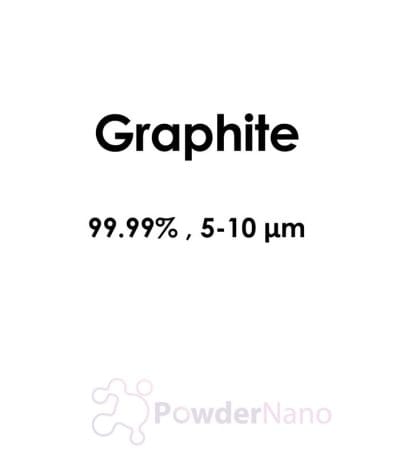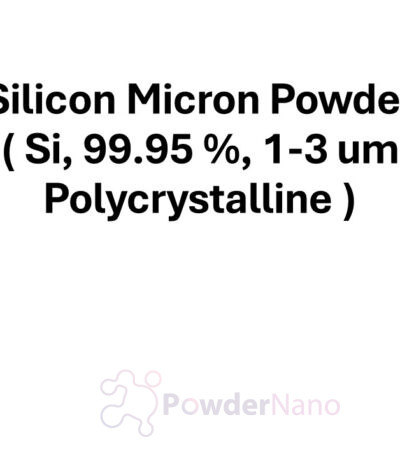Technical Description:
Silicon Micron Powder (Si, 99.95%, 1-3 µm, Polycrystalline) is a high-purity powder made of silicon (Si) with a purity of 99.95%. The powder has a particle size range of 1-3 micrometers (µm), which is ideal for various high-performance applications. The material is polycrystalline, meaning that it consists of many small crystallites or grains that are randomly oriented. This is a typical feature of silicon powders produced via certain manufacturing methods like milling or atomization.
- Chemical Composition:
- Silicon (Si) content: 99.95%, ensuring very low levels of impurities. This high purity is essential for applications where the presence of even trace contaminants could degrade performance, such as in semiconductor or solar industries.
- Particle Size:
- The powder has an average particle size range of 1-3 µm, which offers a fine balance between high surface area and ease of handling. This size range is suitable for high-precision applications that require consistent powder behavior, such as in additive manufacturing or coatings.
- Shape:
- The powder is polycrystalline, meaning it consists of small, randomly oriented crystals. This structure provides unique properties such as high mechanical strength and thermal stability, which are beneficial in various industrial applications. The grain boundaries between the crystals contribute to the material’s overall strength and durability.
- Purity:
- The 99.95% purity ensures that the powder is nearly free from contamination, which is vital for producing high-performance components in industries such as semiconductors, solar energy, and electronics.
Applications:
- Semiconductor Industry:
- Silicon powder with such high purity and fine particle size is essential in the semiconductor industry. It is used in the production of silicon wafers, microchips, and transistors. Silicon is the core material in most semiconductor devices, and the high purity ensures excellent electrical properties, which are crucial for efficient device operation.
- Solar Energy (Photovoltaics):
- Polycrystalline silicon is a widely used material in the manufacture of solar cells. This type of silicon powder is utilized to create silicon wafers for photovoltaic (PV) applications, converting sunlight into electricity efficiently. The 1-3 µm particle size is ideal for achieving high surface area, which is important for enhancing the efficiency of solar cells.
- Additive Manufacturing (3D Printing):
- Polycrystalline silicon powder is suitable for additive manufacturing techniques like Selective Laser Sintering (SLS) and Electron Beam Melting (EBM). The fine particle size allows for precise control of the printing process, enabling the creation of complex, durable parts used in industries like aerospace, electronics, and automotive.
- Battery Technology:
- Silicon has attracted attention in the development of next-generation lithium-ion batteries, especially as an anode material. Silicon-based anodes can store more lithium ions than traditional graphite, offering higher energy density for batteries. The fine powder helps create silicon-based composite anodes, which can improve the capacity and performance of rechargeable batteries.
- Thermal Management:
- Due to its thermal conductivity, silicon is used in thermal management applications. Silicon powder is incorporated into heat sinks, cooling systems, and thermal interface materials (TIMs) used in electronics to dissipate heat efficiently and prevent overheating in devices such as computers, LED lights, and smartphones.
- Chemical Vapor Deposition (CVD):
- Silicon micron powder is often used as a precursor in Chemical Vapor Deposition (CVD) to produce silicon-based films or coatings. These films are used in the semiconductor and solar industries, as well as in thin-film deposition processes. The fine powder ensures uniform coating and high-quality film deposition on various substrates.
- Ceramics and Composites:
- Silicon powder is used in the production of silicon carbide (SiC) ceramics and composite materials, which are known for their high hardness, thermal stability, and wear resistance. These materials are essential in applications such as abrasive tools, cutting tools, wear-resistant coatings, and high-temperature components.
- Microelectronics:
- Polycrystalline silicon is also used in the manufacture of microelectromechanical systems (MEMS), microprocessors, and microelectronic devices. Its high purity and fine particle size allow for the production of high-precision components that are integral to modern electronics.
- Welding and Soldering:
- Silicon powder is sometimes used as a flux material in welding and soldering processes, where it helps improve the flow of molten materials and enhances joint strength. It is commonly used in applications requiring high-temperature resistance and corrosion resistance, such as in aerospace and automotive industries.
- Coatings:
- Silicon coatings are used to enhance the corrosion resistance and abrasion resistance of various substrates. The fine 1-3 µm particle size ensures uniform coating thickness and excellent performance in harsh environments, such as marine and aerospace applications.
- Hydrogen Storage:
- Silicon, in combination with other materials, can be used in hydrogen storage systems. Silicon-based materials can absorb and release hydrogen efficiently, making them suitable for hydrogen fuel cells and energy storage solutions, where efficient and safe storage of hydrogen is critical.
- Advanced Materials and Research:
- Fine polycrystalline silicon powder is used in materials science research and development of new nanomaterials. Its uniform particle size and high purity make it ideal for exploring advanced nanoelectronics, nanostructures, and new applications in nanotechnology.
Summary of Benefits:
- High Purity: The 99.95% purity ensures minimal contamination, which is critical for producing high-quality components in industries like semiconductors, solar energy, and electronics.
- Fine Particle Size (1-3 µm): The fine particle size ensures a high surface area, which is advantageous for applications that require enhanced reactivity, such as in battery technology, CVD processes, and solar cells.
- Polycrystalline Structure: The polycrystalline nature of the powder provides improved mechanical strength, thermal stability, and durability, making it useful in demanding applications.
- Versatility: The powder can be used across a wide range of industries, including electronics, solar energy, battery manufacturing, thermal management, and advanced materials, demonstrating its versatility and importance in modern technologies.
In conclusion, Silicon Micron Powder (99.95%, 1-3 µm, Polycrystalline) is a high-performance material with broad applications in industries that require precision, high purity, and excellent material properties. Its versatility, fine particle size, and polycrystalline structure make it ideal for advanced manufacturing, energy storage, and electronics applications. The powder’s performance ensures its critical role in the development of innovative technologies, such as next-generation solar cells, semiconductors, and battery systems.
